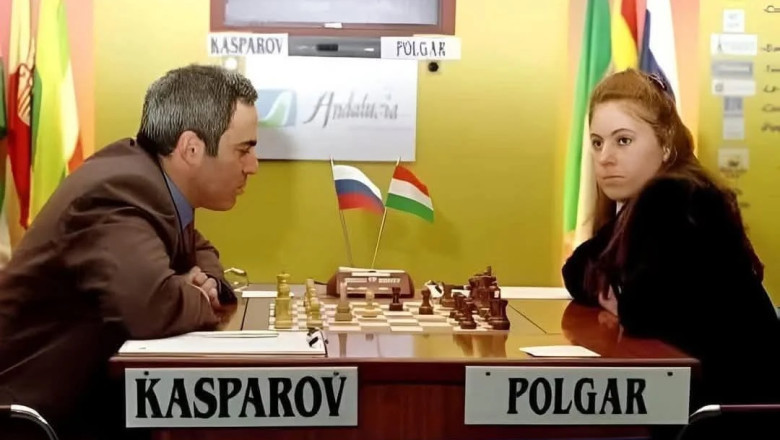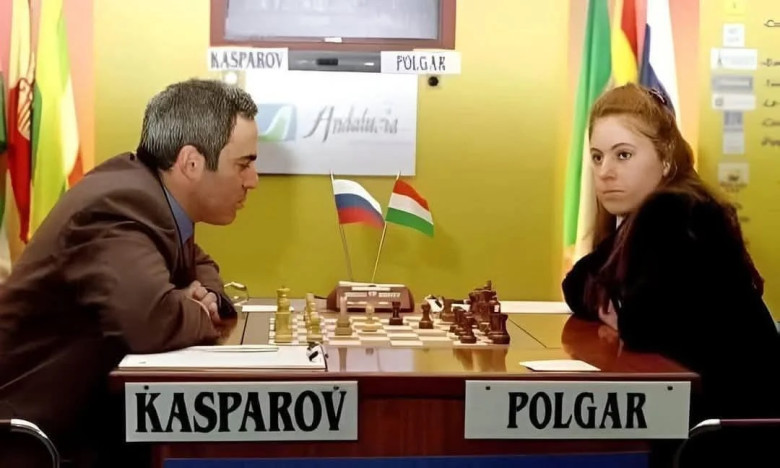
views
Judit Polgár's Historic Victory Over Garry Kasparov in 2002
In the annals of chess history, few matches have garnered as much attention and admiration as the 2002 encounter between Judit Polgár and Garry Kasparov.

This match, part of the "Russia vs. Rest of the World" tournament held in Moscow, saw Polgár, one of the greatest female chess players, go head-to-head with Kasparov, a chess legend and then reigning world champion. It wasn't just a game; it was a milestone in the world of competitive chess.
Setting the Stage
The fifth round of the tournament was highly anticipated. Judit Polgár, with a rating of 2681, was already known for her formidable skills and had made a name for herself in the predominantly male world of chess. Garry Kasparov, on the other hand, had a towering rating of 2838 and was considered nearly unbeatable. The match between them promised high-level strategic play and intense competition.
The Opening Moves
The game kicked off with the Ruy Lopez, Berlin Defense—a choice that immediately set a tone of deep strategic maneuvering. Both players navigated the opening moves with precision, each trying to gain a subtle positional advantage. Polgár aimed to exploit her powerful kingside pawn majority, while Kasparov relied on his advantageous bishop pair to apply pressure.
Polgár's Tactical Brilliance
As the game transitioned into the middle game, Polgár's tactical brilliance and deep understanding of the game began to shine. She executed a series of precise and well-calculated moves that gradually put Kasparov on the defensive. Her strategy was not only sound but also incredibly resourceful, forcing Kasparov to navigate through a labyrinth of tactical complexities.
The Decisive Moment
The turning point came when Polgár, through a combination of strategic foresight and tactical sharpness, created a position that Kasparov couldn't salvage. Her relentless pressure and impeccable play forced the chess legend into a position where resignation was the only viable option. This victory was a historic moment, marking the first time a woman had defeated Kasparov in a classical game.
Aftermath and Significance
Polgár's victory was more than just a personal triumph; it was a groundbreaking achievement that resonated throughout the chess world. It demonstrated that gender was no barrier to competing at the highest levels of chess. This win inspired countless young girls and women to take up the game, knowing that they too could reach the pinnacle of success in the chess world.
Polgár's Enduring Legacy
Following her victory, Judit Polgár's career continued to soar. She remained one of the top players globally, consistently performing at an elite level. Her legacy is not only defined by her victories but also by her role in promoting chess as an inclusive and gender-neutral sport. Polgár's impact extends beyond the chessboard; she has become a symbol of breaking barriers and challenging stereotypes.
Conclusion
The 2002 match between Judit Polgár and Garry Kasparov stands as a testament to Polgár's exceptional skill, determination, and strategic genius. Her victory was a significant milestone in chess history, one that highlighted the limitless potential of talent and hard work, regardless of gender. Polgár's legacy continues to inspire and empower, reminding us of the profound impact of breaking barriers and striving for excellence.












Comments
0 comment